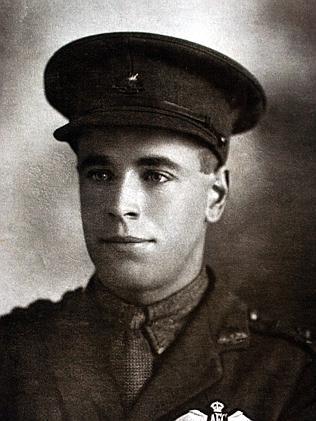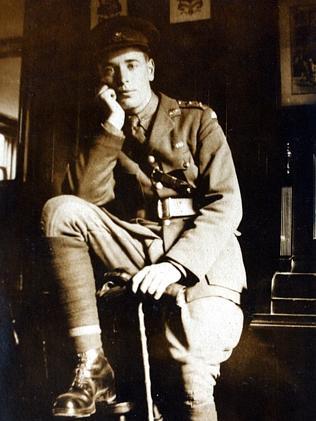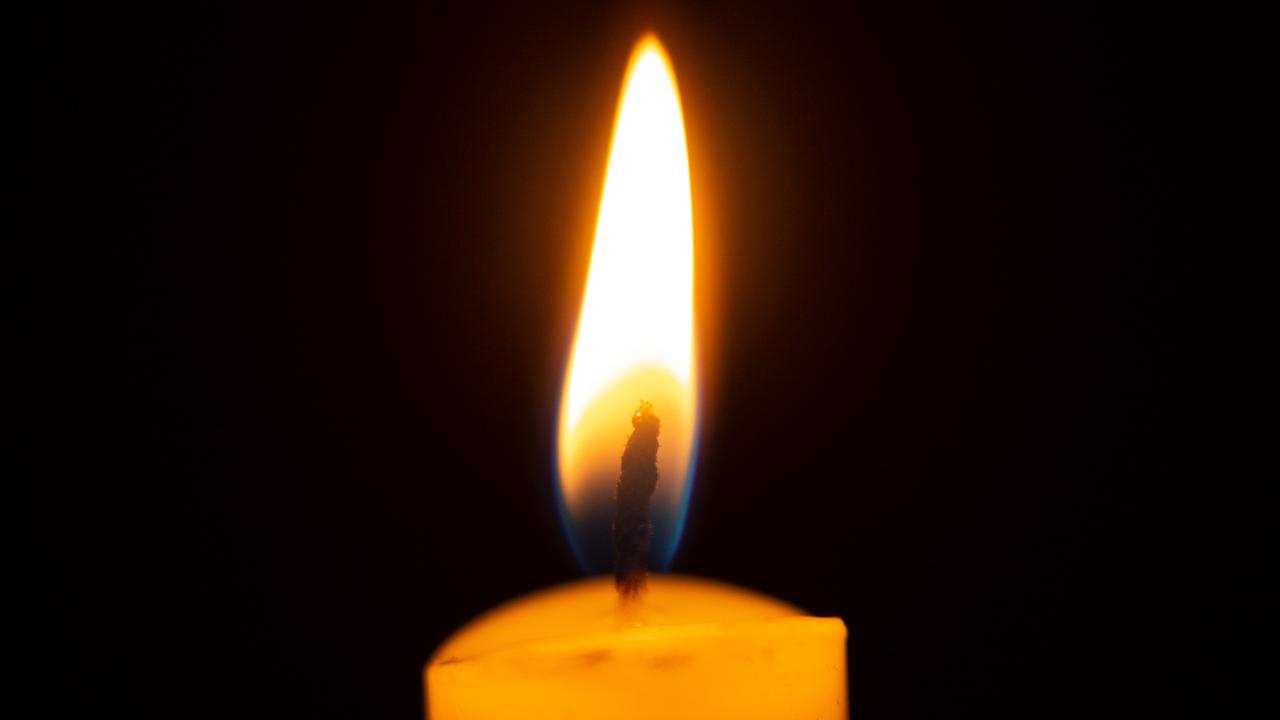Lieutenant Lyell Swann reveals his World War I experiences in war diary
IN the school library of Prince Alfred College can be found some of the state’s most treasured WWI documents, including the war diary of Lieutenant Lyell Swann.
IN the school library of Adelaide’s Prince Alfred College can be found some of the state’s most treasured WWI documents.
They are the meticulously kept war diaries of Lyell Keith Swann, an Australian soldier and later airman who died in France three days after the armistice was signed in 1918.
The diaries are a fascinating insight into life for Australian servicemen overseas as well as their unique take on the events unfolding before them; “Struth I was disappointed,’’ writes Swann when an air raid was cancelled at the last minute.
Swann was good with words and future generations of PAC scholars — as well as Australians at large thanks to the work of Brisbane author and editor of The Swann Diaries, Eldon Bryant — can enjoy an almost daily account of one man’s experiences during the conflict.
Mr Bryant came across the diaries and made sure they were returned to South Australia after his parents befriended Swann’s brother George.
George had been entrusted with the diaries on the death of his brother and was also friends and neighbours of Mr Bryant’s parents in Brisbane.
The following are edited excerpts from the six diaries with around 80 entries kept by Swann between 1916 and 1918:
14th February 1916
From the opening entry, the diaries provide an insight into the thoughts and emotions of the very young Australians, many of whom who were about to embark on a brief but frenetic life abroad:
“On this glorious summer’s morn I wended my way to the Recruiting Office in Currie St (Adelaide), almost opposite that fine progressive firm of H and G’s, and forthwith the hopeful was duly mauled about and knocked about. I was medically fit and before long they would be trying to mould me into a hardened warrior.
Even then my heart felt sorry for the various officers through whose hands I would have to pass’’.
14th March 1916
“Again presented myself for re-examination at the depot and at 4.15 in the afternoon, after having our photos taken, were paraded through the streets to the Exhibition Camp.
As our noble band of 30 odd emerged into the crowded metropolis we were greeted with prolonged cheers and thunderous applause from the bystanders, by that I mean the three factory girls present, and I almost had to keep the crowd back with my little stick.
It has been said (so I’m told) that no finer body of men have ever passed through Adelaide as this brilliant squad of raw recruits, and I believe this is quite wrong — I mean right, of course.’’
15th December 1916
“Took over again first thing but it was very quiet all day except at 5 o’clock we gave old Fritz a heavy strafe from our new gun which stirred him up considerably and by his flashlight at night he was also very frightened.
Our patrol had an amusing time when it was coming in, as the listening post mistook them for Germans. One chap chucked a bomb, but in his excitement, he forgot to release the pin so he jumped out and gave the patrol Cpl. a rotten black eye and ducked back for his life.”


MORE: Anzac to Afghanistan - 100 years of untold stories
31st January 1917
“At about 6 o’clock Fritz started, and didn’t he warm up. For an hour and a half he gave us hell and I’m almost sure our artillery put in a little dirty work too. Poor old “B” Coy. Got it hard and the trenches for some considerable distance were knocked out of shape completely. Our casualties amounted to over 70 and seven or eight paid the supreme sacrifice. Fritz tried to raid on our right but one Lewis Gunner stuck to his post and turned them back. Two of our Sgts. got wounded and one is almost sure of a Blighty. Lucky beggar.
Stripes have been flying round galore and rapid promotion awaits anyone of merit. It took us a long while to get things straightened and some of the lads were badly shaken. This shell shock is a rotten thing and it’s a bad lookout for these young fellows in years to come.”
1st September 1917
“Great sadness! Realised that it was our last day in Paris. Breakfast consists of coffee and rolls chiefly and it’s a great stunt to lazily stretch out your arm, grab the telephone and order your meal. It did me down to the ground and I’m pretty fussy. Went to a nice little girl’s room to tea and she gave us a tasty lot of fancy cakes. Andree McNill was her name and she was the only decent girl I met. She spoke English and gave us a great time. She was very cut up when we had to go and then I realised what a cruel war it was.
Am patiently waiting for Blighty leave which should come along about April 1927 with luck!!’’
11th October 1917
“Nearly all the way the mud was over our knees and the poor lads were throwing away equipment, rifles, overcoats and any unnecessary impediments. That struggle home was a nightmare — you’d see fellows get stuck in the mud, simply sink down and say “All right cobber, go on” and then die. Even in shell holes the mud was sometimes over the knees and the wounded had an awful time.
The majority were brought in but some poor chaps simply died of exhaustion, they crawled into shell holes and couldn’t get out. The nights were awful but its wonderful how callous a fellow gets.
When you see a fellow with his leg blown off pleading for help and you’ve simply got to push on you’d think it would make you cry, but no! we take it as a matter of course, it can’t be otherwise. We had two officers killed and 23 other ranks and a large number wounded. His machine gun fire was pretty rotten for us and the barrage hardly touched any of his pillboxes.”
13th November 1918
“The terms of the armistice are great and I didn’t think for a moment that we’ll have to stoush up again.’’
Swann’s last diary entry was on 13 November 1918, and he died the next day after crashing his plane on landing.
Copies of the diaries can be obtained from the editor of The Swann Diaries, Eldon R.J. Bryant at artillery.oz@bigpond.com


